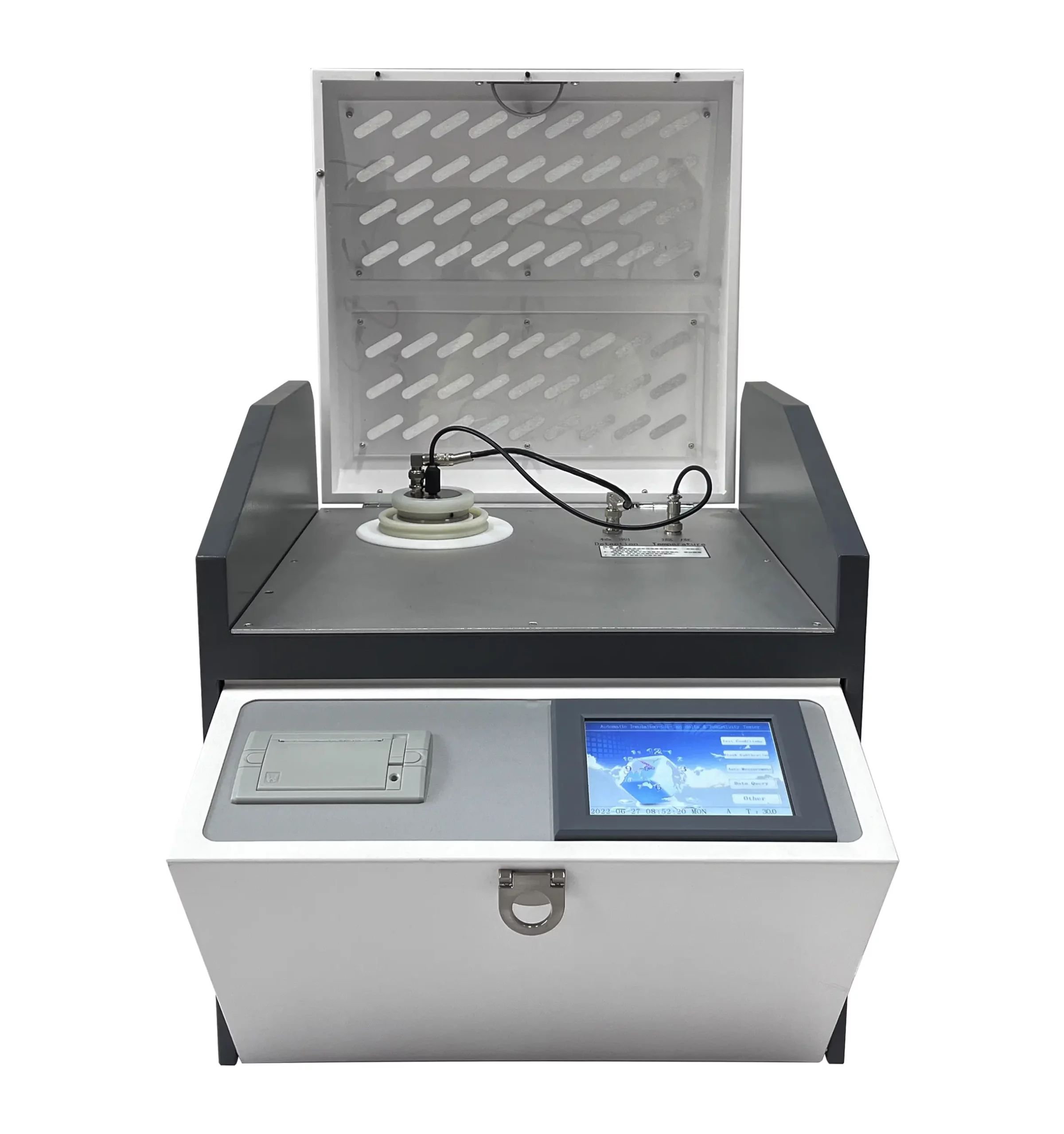A tan delta test kit offers several advantages in complying with regulatory standards and industry best practices related to transformer maintenance and oil quality assessment:
- Accurate Compliance Verification: Tan delta tests assess the condition of transformer insulation oil, ensuring it meets specified dielectric strength standards set by regulatory bodies. This verification is crucial for compliance with industry standards and regulations.
- Quality Assurance: Conducting regular tan delta tests demonstrates a commitment to maintaining high-quality transformer insulation oil as per industry best practices. It assures that the oil’s dielectric properties are within acceptable limits.
- Regulatory Adherence: Many regulatory bodies mandate regular testing of transformer oil for insulation quality. Using a tan delta test kit helps meet these requirements, avoiding potential penalties or non-compliance issues.
- Documentation and Reporting: Tan delta test kits often provide documentation capabilities for test results. This documentation is essential for regulatory compliance, audits, and maintaining records to showcase adherence to industry best practices.
- Preventive Maintenance Standards: Industry best practices often advocate for preventive maintenance strategies. Tan delta testing aids in implementing these practices by enabling early detection of insulation issues, aligning with proactive maintenance strategies.
- Enhanced Safety Standards: Ensuring the dielectric strength of transformer oil aligns with safety standards. Adhering to these standards mitigates the risk of insulation breakdowns, reducing hazards and ensuring a safer working environment.
- Long-Term Equipment Reliability: Compliance with industry best practices through tan delta testing contributes to the long-term reliability of transformers. It helps in preventing failures due to degraded insulation, extending equipment lifespan.
- Risk Mitigation: Tan delta testing helps mitigate risks associated with inadequate insulation oil quality, reducing the likelihood of transformer failures that could impact operations, safety, and the environment.
- Continuous Improvement: Adhering to best practices in oil testing allows for continuous monitoring and improvement of transformer health. It helps in identifying trends and taking proactive measures to maintain optimal insulation quality.
In summary, utilizing a tan delta test kit supports compliance with regulatory standards and industry best practices by ensuring accurate assessment of transformer oil quality, tan delta test kit facilitating documentation and reporting, enabling preventive maintenance, enhancing safety standards, promoting long-term equipment reliability, mitigating risks, and fostering a culture of continuous improvement in transformer maintenance strategies.
What are the long-term benefits of integrating an tan delta test kit into a comprehensive maintenance strategy?
Integrating a tan delta test kit into a comprehensive maintenance strategy offers several long-term benefits for transformer health and operational reliability:
- Early Issue Detection: Continuous tan delta testing allows for the early detection of deteriorating insulation in transformer oil. Identifying issues early helps in addressing potential problems before they escalate, preventing major failures and extending the transformer’s lifespan.
- Predictive Maintenance: Incorporating tan delta testing into a maintenance strategy facilitates a shift from reactive to predictive maintenance. Trends and historical data obtained from continuous testing enable predictive analysis, optimizing maintenance schedules and resource allocation.
- Extended Equipment Lifespan: Regular assessment of insulation quality through tan delta testing helps in preserving the dielectric properties of the oil, contributing to the prolonged service life of transformers. This leads to increased reliability and reduced replacement frequency.
- Cost Savings: Proactively addressing issues identified by tan delta testing reduces the likelihood of expensive breakdowns and repairs. This results in cost savings by minimizing downtime, emergency maintenance costs, and the need for premature replacements.
- Operational Continuity: By ensuring the integrity of transformer insulation, tan delta testing supports operational continuity. Preventing unexpected failures or breakdowns helps maintain uninterrupted operations critical for various industries.
- Improved Safety: Reliable insulation is crucial for safety in electrical systems. By maintaining the dielectric strength of transformer oil, tan delta testing contributes to a safer operating environment, reducing the risk of hazards due to insulation failures.
- Regulatory Compliance: Integration of tan delta testing into a maintenance strategy ensures compliance with industry standards and regulatory requirements. Meeting these standards not only ensures safety but also reflects the credibility and reliability of the maintenance practices.
- Data-Driven Decision-Making: Continuous testing generates valuable data for trend analysis and decision-making. This data-driven approach supports informed decisions about maintenance interventions, optimizing strategies for better long-term outcomes.
- Enhanced Performance Monitoring: Continuous tan delta testing provides a comprehensive view of the transformer’s health over time. This allows for better monitoring of performance, enabling timely interventions and adjustments as needed.
In essence, integrating a tan delta test kit into a comprehensive maintenance strategy leads to long-term benefits such as early issue detection, predictive maintenance, extended equipment lifespan, cost savings, operational continuity, improved safety, regulatory compliance, data-driven decision-making, and enhanced performance monitoring. These benefits collectively contribute to the reliability, longevity, and efficient operation of transformers within an electrical system.
